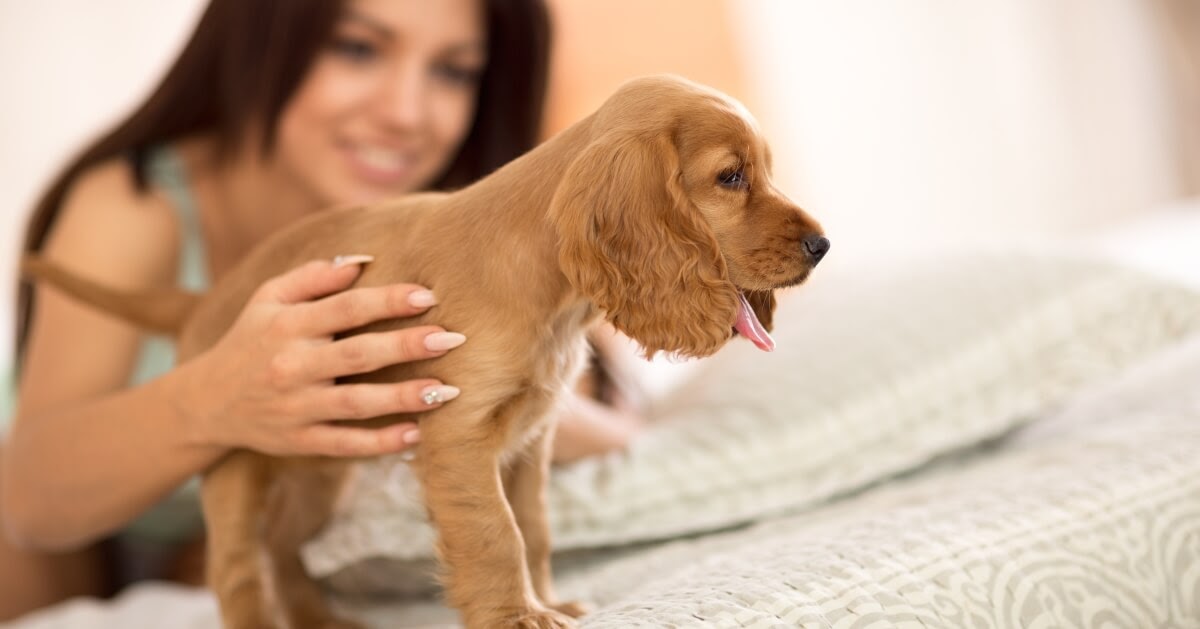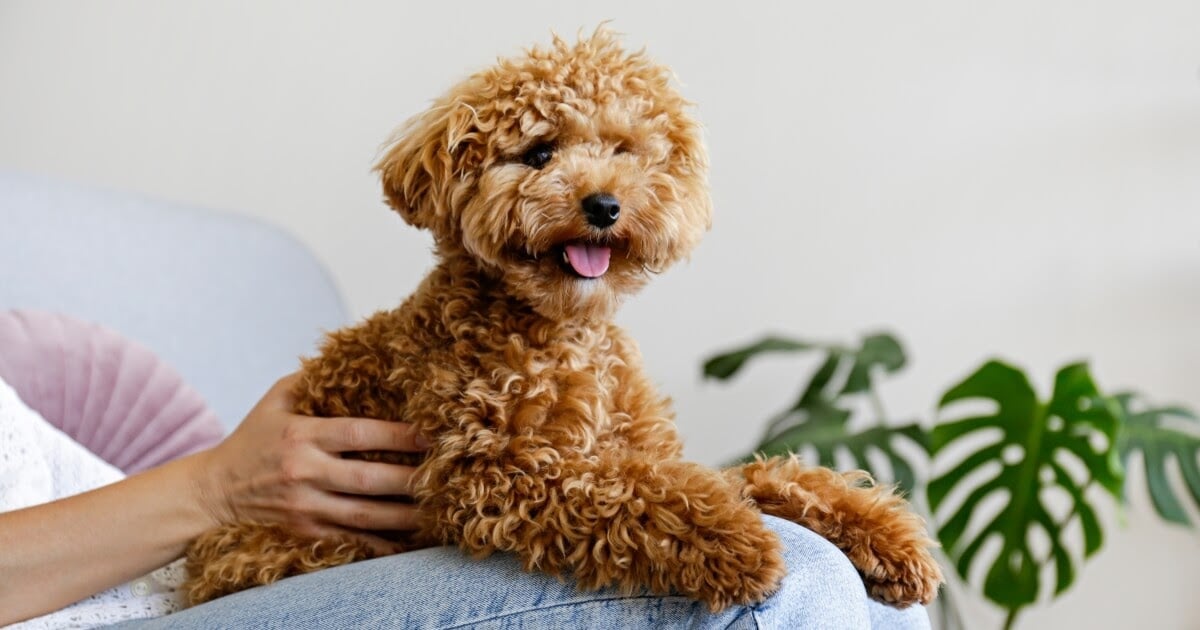What Dog Breeds Are The Best For First Time Owners?
If you are thinking about adopting a dog for the first time, you may already have an idea of what breed you are attracted to. You may have had experience with a friend’s pooch, or a cute breed might have caught your eye, or you may have had a dog in your family when you were a child - which is different to owning and taking care of one!
Dogs didn’t get the title of “man’s best friend” for nothing! Having dogs around the home can be therapeutic; they are amazing companions, they are loyal, and they give unconditional love which has proven to have a positive effect on our mental health. Did you know that a recent study showed that 91% of dog owners reported that their pet helped them cope emotionally during the first COVID-19 lockdown of 2020?
Becoming a dog owner for the first time is very exciting, but when making your choice, it's important to consider the long term responsibility that comes from owning a dog. Just like humans, all dogs are individuals and have different personalities, so before you commit you need to make sure that they will fit into your lifestyle and situation.
THINGS TO CONSIDER BEFORE ADOPTING A DOG

- What are your family circumstances? How many people are in the house? Do you have kids, and how old are they? If you have very young children at home, be confident that they won’t alarm a puppy with over exuberance when you bring the pup home. A puppy may nip a child if they get squeezed too hard, or if they get nervous. Be prepared to put plenty of work into helping them to bond in a controlled way.
- What space do you have in your home? If you have a garden where a dog can have a run around and spend time outdoors, your choice of breed will be less limited. If you live in a flat, you may find that a smaller breed of dog would be more suitable. Remember, the larger the dog, the more space they need!
- All dogs need exercise, but some breeds need more than others. Consider how much time you - or other members of your family - will be able to commit to ensure your new pooch keeps fit and healthy and has plenty of exercise, as well as training, socializing and companionship.
- Have you considered cost? All dogs have basic requirements like a bed or a crate, leads, collars, toys, food, veterinary care and, of course, grooming for some long-hair breeds. Do your homework to ensure that ongoing costs will not become prohibitive in the long term.
Or if you have an elderly person at home, you may consider that an older dog would be less likely to run around and more likely to sit on a sofa as a companion.
UNDERSTANDING DOG BREEDS
There are more than 350 dog breeds in the world! That’s a huge choice and it's incredible that they all evolved from the wolf; these breeds can be split into 7 different dog groups and understanding these groups may help you choose the breed of dog that would be best for you:
Herding / Pastoral: This group includes dog breeds developed for moving livestock, like sheep and cattle. These dogs will like to be active and are alert to their surroundings.
Toy: Many dogs in this group were bred to be companions, so may be ideal for people living in the city and for those who live in apartments or only have a small garden. In the main they are often busy dogs so don’t need very long walks.
Sporting: These dogs were bred to assist hunters in the capture and retrieval of game, so they will love to chase. They have lots of stamina and are easy to train.
Terrier: These short-legged breeds were first bred to hunt out rodents and other vermin, so they are quite persistent but full of character. Determined and courageous, but sometimes noisy.
Hound: These breeds were bred to hunt animals including deer, fish, ducks, and birds, so when they pick up a scent it is often difficult to distract them as they are persistent.
Working Group: These breeds were developed to assist humans in activities such as pulling sleds to guarding flocks and to protecting their families. Known as long distance runners in the canine world.
Non-Sporting: This is an all-inclusive group of dogs which were bred to interact with people in some capacity. The variety of jobs (such as herding or hunting) means these come in all sizes with different personalities.
And in addition to these 7, we of course have all of our glorious cross-breeds, who may cross over any number of these doggy specialisms!
When you are choosing a breed, clearly there’s a lot to consider! But rather than choosing the first cute puppy you see, think about how you would like it to fit into your family and lifestyle.
Genetics play a huge role in a dog’s breed, and they all have their own personalities too. Only adopt your puppy from a bonafide breeder, from a rescue home or from someone you know well and who can vouch for the mother and father, and tell you about their personalities, likes and dislikes, how much exercise/mental stimulation they need, and how much socialization they’ve had so far; this will enable you to judge if they are compatible and you can provide a happy home for them.
Do your research! Visit a re-homing centre to get a first hand look at different breeds, or visit dog shows where you will be able to talk to breeders, vets and trainers who have worked with different breeds to get specific advice on which breed might suit you best.
WHAT DOG BREEDS ARE BEST FOR FIRST TIME OWNERS?

Here are just a few breeds for you to consider:
- Boxers (Working Group): a playful breed with high energy that make great family members. Medium to large and need a lot of exercise.
- Cavalier King Charles Spaniel (Toy Group): Small dogs with a sweet nature; they will require regular basic grooming (brushing) and they respond well to training. Will fit in easily to most households and get along well with children.
- Labrador Retriever (Sporting Group): Medium-large, popular family dog. They love to learn, so they are easy to train. You will need to watch their diet (they love food!) and ensure they have lots of exercise.
- Bichon Frise (Non-Sporting Group): Great companion dogs which are easy to train. They fit in well with different lifestyles and are not overly demanding on the exercise front. Their curly coat will need regular grooming.
- Golden Retriever (Sporting Group): A popular, medium-large family dog. Very smart and adaptable to different households. They need regular exercise and mental stimulation, and are easy to train as they are eager to please. They need regular brushing as they have a long hair coat.
- Papillon (Toy Group): A small, inquisitive adaptable breed. They like lots of playtime and are easy to train. Their fluffy coat is not hard to maintain.
- Poodles (Non Sporting Group): A versatile and popular breed. Needs regular grooming to maintain their curly coat but they are very intelligent dogs and respond well to training. Adaptable to different sorts of households.
- Greyhounds (Hound Group): Very calm dogs that love company and attention. Just as happy at home as they are running outdoors.
- Labradoodle (Mixed breed): Medium-large dogs who are very intelligent. They need mental stimulation and a good level of exercise. They like to be kept busy and adapt well to different households.
- Goldendoodle (Mixed breed): Another medium-large dog breed which is highly intelligent. They adapt to a variety of households but they are energetic and need a lot of exercise/mental stimulation.
- Cocker Spaniel (Sporting Group): Small-medium in size but large in character as they love to play. Their coat needs regular maintenance.
- Staffordshire Bull Terrier (Terrier Group): Medium sized dogs that can be calm and loving companions. Need a moderate amount of exercise and training, which they find easy.
- Bearded Collie (Herding Group): A popular family companion of medium size that gets on well with children and other pets. Needs plenty of exercise and regular grooming because of their long shaggy coat.
As a first time dog owner you have an amazing choice; however, whichever dog you choose, make sure that your home is doggie friendly and safe! You will need a comfy bed, food and water bowls, collar and lead, toys, lots of love and attention and, of course, help from ADAPTIL!
ADAPTIL provide a range of products to help your pooch through training, new experiences, and challenging situations, including:
- ADAPTIL Junior to help your puppy settle into their new home.
- ADAPTIL Calm Home Diffuser to help your dog remain calm in different situations (like staying at home).
- ADAPTIL Transport Spray for those occasions when you take your dog on a car journey.
Related posts
Leave A Comment
Want to sign up for our blog?
Information Notice
The personal information collected is intended for Ceva Santé Animale, and Ceva group companies, in order to manage your request.This information may be passed on to service providers in order to organize this management. In accordance with the Regulations on personal data you have rights of access, rectification and limitation of processing of your data. You may also, in certain limited cases, oppose the treatment, withdraw your consent and request the deletion and portability of your data. For any request relating to your personal data please go to this page